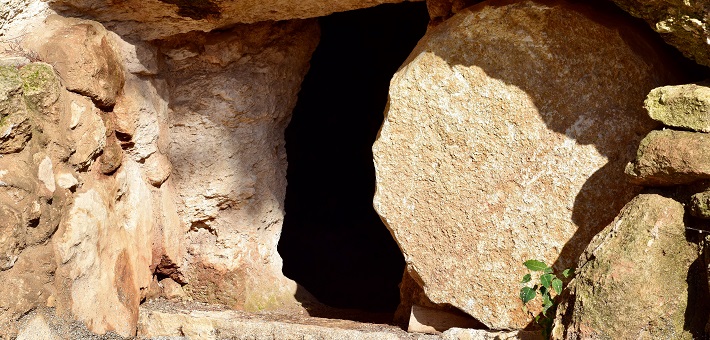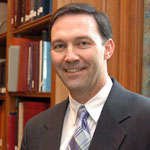Commentary on Psalm 118:1-2, 14-24
Psalm 118 is the psalm of psalms for the Easter season.1
The early church found in Psalm 118 the words of Jesus who remembered his suffering and persecution during Holy Week and who gave thanks for deliverance from the grave on Easter.
Psalm 118 concludes a run of psalms (Psalms 113-118) known as the Egyptian Hallel (Hallel, after the word hallelujah, “Praise the Lord” that appears prominently in these psalms and helps tie them together). These psalms were central to the Passover liturgy. Jewish tradition holds that the Israelites recited the words of the Hallel when they came out of Egypt (b. Pesahim 117a).
Themes related to the exodus (Psalm 114), including allusions to the Third Commandment (Exodus 20:4-6; Psalm 115:3-8), as well as references to the house of Aaron (Psalms 115:10, 12; 118:3) solidify the association with the events the festival celebrates. Psalm 118 concludes this section of psalms by giving thanks for God’s deliverance. Thus, the language of the psalm fits Passover (verses 10-14), but early Christians saw in it language and themes that spoke most directly about God’s vindication of Jesus.
All four Gospels report the crowd at Jesus’ triumphal entry into Jerusalem recited Psalm 118:25-26 (Matthew 21:1-11; Mark 11:1-11; Luke 19:28-40; John 12:12-19). That portion of the psalm is part of the reading for Palm Sunday (Psalm 118:1-2, 19-29), and another division is a reading for the second Sunday of Easter (Psalm 118:14-29). The verses of our reading for the Resurrection of the Lord fit particularly well the celebration of the resurrection of Jesus.
One of the most difficult questions about this psalm regards its genre. What type of poem is it, and what type of occasion likely gave rise to it? Psalm 118:1-2, 14-24 contains elements of several psalm genres, each of which is appropriate for this day in the church year. The reading begins with and is dominated by thanksgiving. The opening of the psalm has language common in thanksgiving prayers, “O give thanks to the Lord, for he is good; his steadfast love endures forever!” (verse 1; see Psalm 30:4, 12). Verse 21 again expresses thanks in first-person style, like the thanks Israelites gave when they brought their thanksgiving offerings to the temple (Jeremiah 33:11). Hence, the opening verses set the tone for the lectionary reading, and for the Easter celebration, by offering thanks to God for God’s “steadfast love” (verses 1-2).
Verse 14, again in first-person style, echoes the expressions of confidence in God that appear in individual prayers for help: “The Lord is my strength and my might; he has become my salvation” (see Psalms 3:3; 13:5). As in the other such prayers, this expression of confidence assumes there was trouble in the past, but God has delivered the one who speaks. The verses prior to this one describe the trouble (verses 5-13).
The early church read all the prayers for help in first-person style as the prayers of Jesus. These psalms were especially important for understanding Jesus’ suffering and death. For example, the writers of Matthew and Mark used Psalm 22 to frame the passion narrative (see for example Mark 15:24/Psalm 22:18; Mark 15:34/Psalm 22:1). Early Christians likewise read numerous elements of Psalm 118 as expressions of confidence and praise for God’s salvation of Jesus from the dead.
The invitation to praise in verse 24 is like the calls to worship in hymns of praise (Psalm 100:1-2) and this element of the psalm may be most suited to Easter. Originally the reference to “the day” likely referred to the climactic day of a festival in the Jerusalem temple. Verse 27 speaks of a procession to the alter of the temple with worshippers carrying festal branches. This reflects the practice during the Feast of Booths in which participants cut branches as part of the celebration (Leviticus 23:40). Christians came to understand all these festive images as evocative of Jesus’ life and “the day” became the day of resurrection, the lord’s day.
Perhaps the most vexing question about Psalm 118 is, who is the individual who speaks? Whose voice recalls past trouble and celebrates God’s salvation? Specifically, who professes “the lord is my strength and my might; he has become my salvation” (verse 14), declares “I shall not die, but I shall live” (verse 17), and says “I thank you that you have answered me and have become my salvation” (verse 21)? Some scholars believe the king of Judah was the original voice who prayed in Psalm 118. It seems likely that the king played an important role in public worship, and that much communal worship engaged issues in the life of the king (2 Samuel 6).
His appointment to office, along with his victory or defeat in battle were matters of prayer, concern or celebration. The psalm does not identify the speaker, however, and that leaves the psalm open to interpretation and to apply its words to new situations. The early church naturally connected the psalms prayer and claims of faith to the resurrected Jesus. The messianic reading drew from numerous part of the psalm. Jesus was the “stone that the builders rejected” who had become “the chief cornerstone” (verse 22; Matthew 21:42; Mark 12:10; Luke 20:17; 1 Peter 2:7). His resurrection was “the day” God had made (verse 24). He was the one who came in the name of the lord (verse 26). In these ways the psalm expounds on Jesus’ identity as the son of David (Matthew 21:9), the king of Israel (John 12:13).
Some modern readers have balked at the association of Jesus with the one who prays in Psalm 118 because it was not the psalm’s “original intent.” The connection between the psalm and Jesus, however, is not a claim that the author spoke about Jesus, as much as it is recognition that the way God provided salvation to the speaker in the psalm fits perfectly the circumstances of the risen Christ.
Notes
- Commentary first published on this site on April 21, 2019.


April 4, 2021